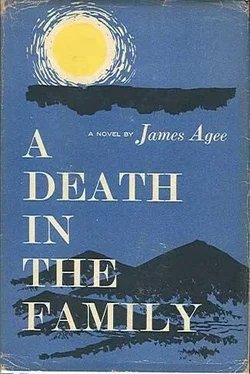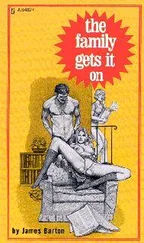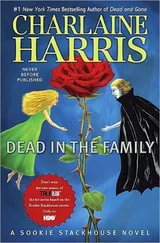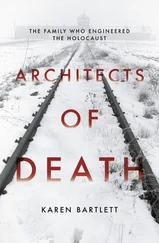He nodded, ashamed of himself and secretly disappointed.
"Now run along," she said. They left the room. Aunt Hannah met them on the stairs. "Go into the liv-sitting room for a while like good children," she said. "I'll be right down." And as they reached the bottom of the stairs they heard their mother's door open and close. They sat, looking at their father's chair, thinking.
Catherine felt more virtuous and less troubled than she had for some time, for she had watched Rufus being scolded, all to himself, and it more than wiped out her unhappiness at his telling her to come along when of course she was coming and he had no right even if she wasn't. But she couldn't see how anyone could look as if they were asleep and not wake up, and something else her mother had said-she tried hard to remember what it was-troubled her more deeply than that. And what was a norphan?
Rufus felt that his mother was seriously displeased with him. It was the wrong time to ask her. Maybe he ought not to have asked her at all. But he did want to know. He had not been sure whether or not he was an orphan, or the right kind of orphans. If he claimed he was an orphan in school and it turned out that he was not, people would all laugh at him. But if he really was an orphan he wanted to know, so he would be able to say he was, and get the benefit. What was the good of being an orphan if nobody else knew it? Well, so he was not an orphan. Yet his father was dead. Not his mother, too, though. Only his father. But one was dead. One and one makes two. One-half of two equals one. He was half an orphan, no matter what his mother said. And he had a sister who was half an orphan too. Half and half equals a whole. Together they made a whole orphan. He felt that it was not worth mentioning, that he was half an orphan, although he privately considered it a good deal better than nothing; and that also, he would not volunteer the fact that he and his sister together made a whole orphan. But if anyone teased either of them about not being an orphan at all, then he would certainly speak of that. He decided that Catherine should be warned of this, so that if they were teased, they could back each other up.
"Both of us together is a whole orphan," he said.
"Huh?"
"Don't say 'huh,' say, 'What is it, Rufus?' "
"I will not!"
"You will so. Mama says to."
"She does not."
"She does so. When I say 'huh' she says, 'Don't say "huh," say "What is it, Mother?' " When you say 'huh' she tells you the same thing. So don't say 'huh.' Say, 'What is it, Rufus?' "
"I won't say it to you."
"Yes, you will."
"No, I won't."
"Yes, you will, because Mama said for us to be good. If you don't I'll tell her on you."
"You tell her and I'll tell on you."
"Tell on me for what?"
"Listening at the door."
"No you won't."
"I will so."
"You will not."
"I will so."
He thought it over.
"All right, don't say it, and I won't tell on you if you won't tell on me."
"I will if you tell on me."
"I said I won't, didn't I? Not if you don't tell on me."
"I won't if you don't tell on me."
"All right."
They glared at each other.
They heard loud feet on the porch, and the doorbell rang. Upstairs they heard their mother cry "Oh, goodness!" They ran to the door. He blocked Catherine away from the knob and opened it.
A man stood there, almost as tall as Daddy. He had a black glaring collar like Dr. Whittaker but wore a purple vest. He wore a long shallow hat and he had a long, sharp, bluish chin almost like a plow. He carried a small, shining black suitcase. He seemed to be as disconcerted and displeased as they were. He said, "Oh, good morning," in a voice that had echoes in it and, frowning, glanced once again at the number along the side of the door. "Of course," he said, with a smile they did not understand. "You're Rufus and Catherine. May I come in?" And without waiting for their assent or withdrawal (for they were blocking the door) he strode forward, parting them with firm hands and saying "Isn't Miss L…"
They heard Aunt Hannah's voice behind them on the stairs, and turned. "Father?" she said, peering against the door's light. "Come right in." And she came up as he quickly removed his oddly shaped hat, and they shook hands. "This is Father Jackson, Rufus and Catherine," she said. "He has come specially from Chattanooga. Father, this is Rufus, and this is Catherine."
"Yes, we've already introduced ourselves," said Father Jackson, as if he thought it was funny. That's a lie, Rufus reflected. Father Jackson left one hand at rest for a moment on Catherine, then removed it as if he had forgotten her. "And where is Mrs. Follet?" he asked, almost whispering "Mrs. Follet."
"If you'll just wait a moment, Father, she isn't quite ready."
"Of course." He leaned towards Aunt Hannah and said, in a grinding, scarcely audible voice, "Is she-chuff-chuff-chuff?"
"Oh yes," Hannah replied.
"But does she Whehf-wheff-whehf-whef-tized?"
"I'm afraid not, Father," said Hannah, gravely. "I wasn't quite sure enough, myself, to tell her. I'm sorry to burden you with it but I felt I should leave that to you."
"You were right, Miss Lynch. Absolutely." He looked around, his head gliding, his hat in his hand. "Now little man," he said, "if you'll kindly relieve me of my hat."
"Rufus," said Hannah. "Take Father's hat to the hat rack."
Bewildered, he did so. The hat rack was in plain sight.
"Now Father, if you won't mind waiting just a moment," Hannah said, showing him in to the sitting room. "Rufus: Catherine: sit here with Father. Excuse me," she added, and she hastened upstairs.
Father Jackson strode efficiently across the room, sat in their father's chair, crossed his knees narrowly, and looked, frowning, at the carefully polished toe of his right shoe. They watched him, and Rufus wondered whether to tell him whose chair it was. Father Jackson held his long, heavily veined right hand palm outward, at arm's length, and, frowning, examined his nails. He certainly wouldn't have sat in it, Rufus felt, if he had known whose chair it was, so it would be mean not to tell him. But if he was told now, it would make him feel bad, Rufus thought. Catherine noticed, with interest, that outside the purple vest he wore a thin gold chain; on the chain was a small gold crucifix. Father Jackson changed knees and, frowning, examined the carefully polished toe of his left shoe. Better not tell him, Rufus thought; it would be mean. How do you get such a blue face, Catherine wondered; I wish my face was blue, not red. Father Jackson, frowning, looked all around the room and smiled, faintly, as his gaze came to rest on some point above and beyond the heads of the children. Both turned to see what he was smiling at, but there was nothing there except the picture of Jesus when Jesus was a little boy, staying up late in his nightgown and talking to all the wise men in the temple. "Oh," Rufus realized; "that's why."
When they turned Father Jackson was frowning again and looking at them just as he had looked at his nails. He quickly smiled, though not as nicely as he had smiled at Jesus, and changed his way of looking so that it did not seem that he was curious whether they were really clean. But he still looked as if he were displeased about something. They both looked back, wondering what he was displeased about. Was Catherine wetting her panties, Rufus wondered; he looked at her but she looked all right to him. What was Rufus doing that the man looked so unpleasant, Catherine wondered. She looked at him, but all he was doing was looking at the man. They both looked at him, wishing that if he was displeased with them he would tell them why instead of looking like that, and wishing that he would sit in some other chair. He looked at both of them, feeling that their rude staring was undermining his gaze and his silence, by which he had intended to impress them into a sufficiently solemn and receptive state for the things he intended to say to them; and wondering whether or no he should reprimand them. Surely, he decided, if they lack manners even at such a time as this, this is the time to speak of it.
Читать дальше












